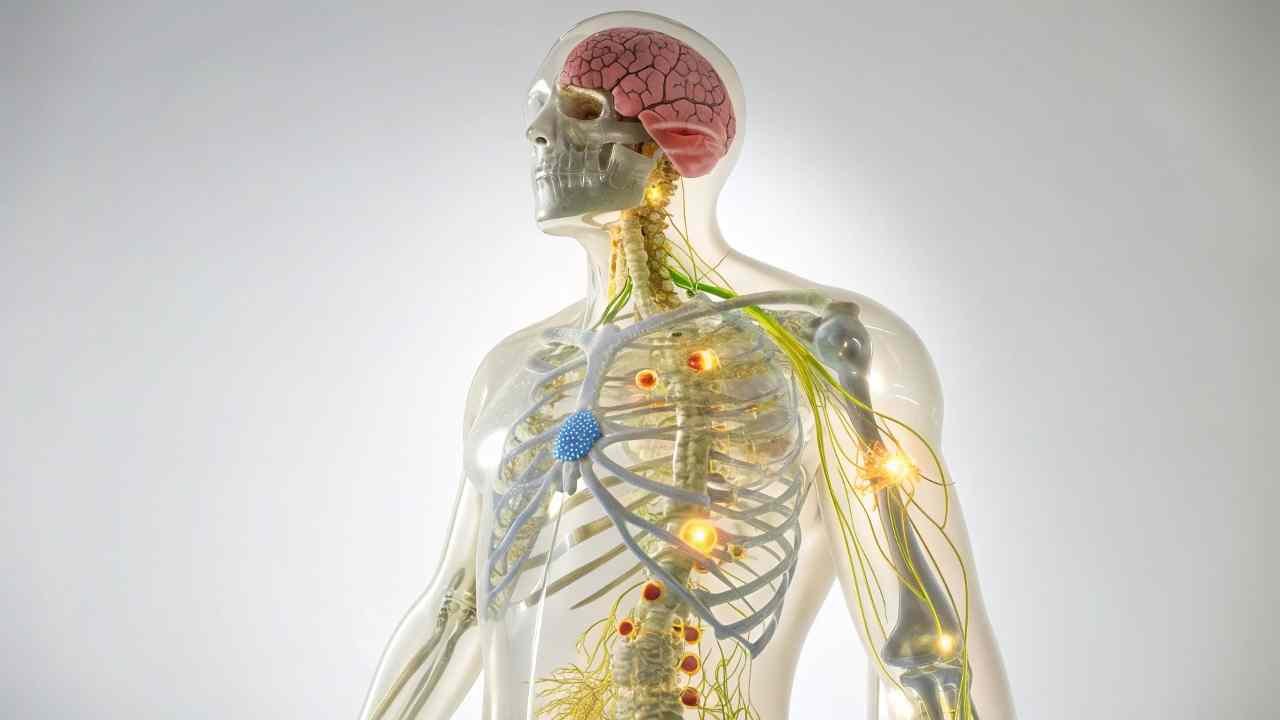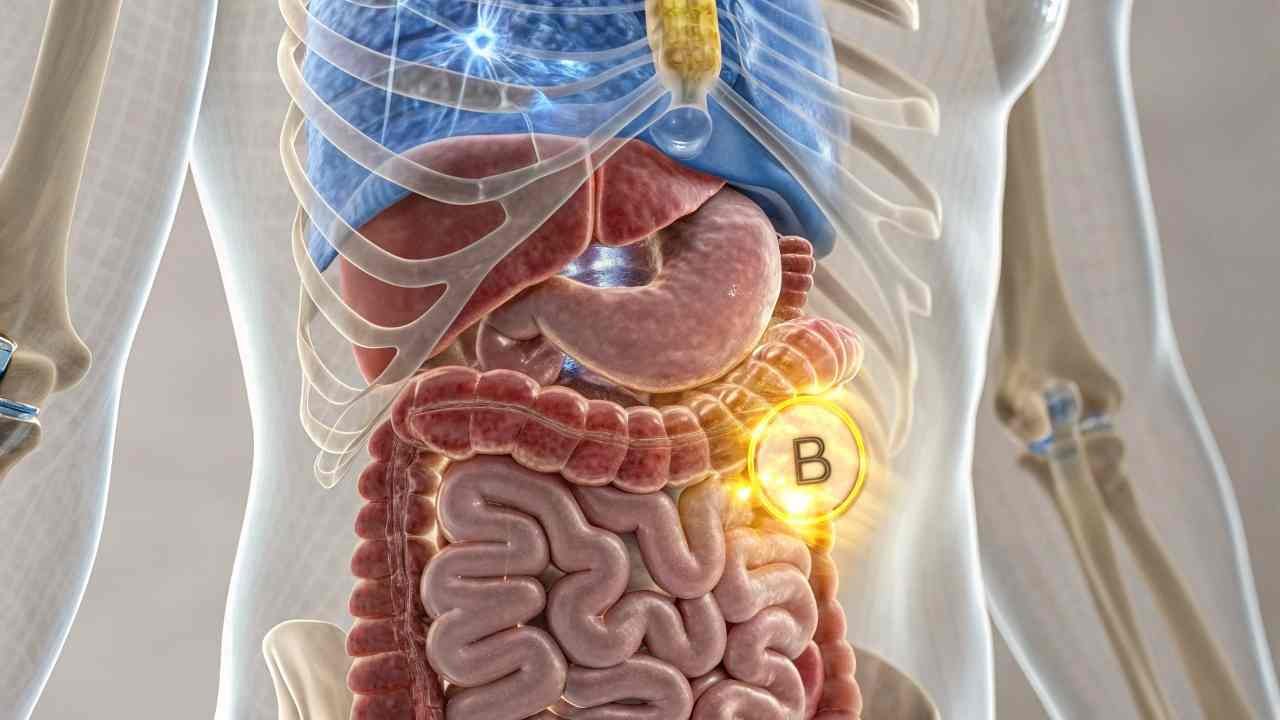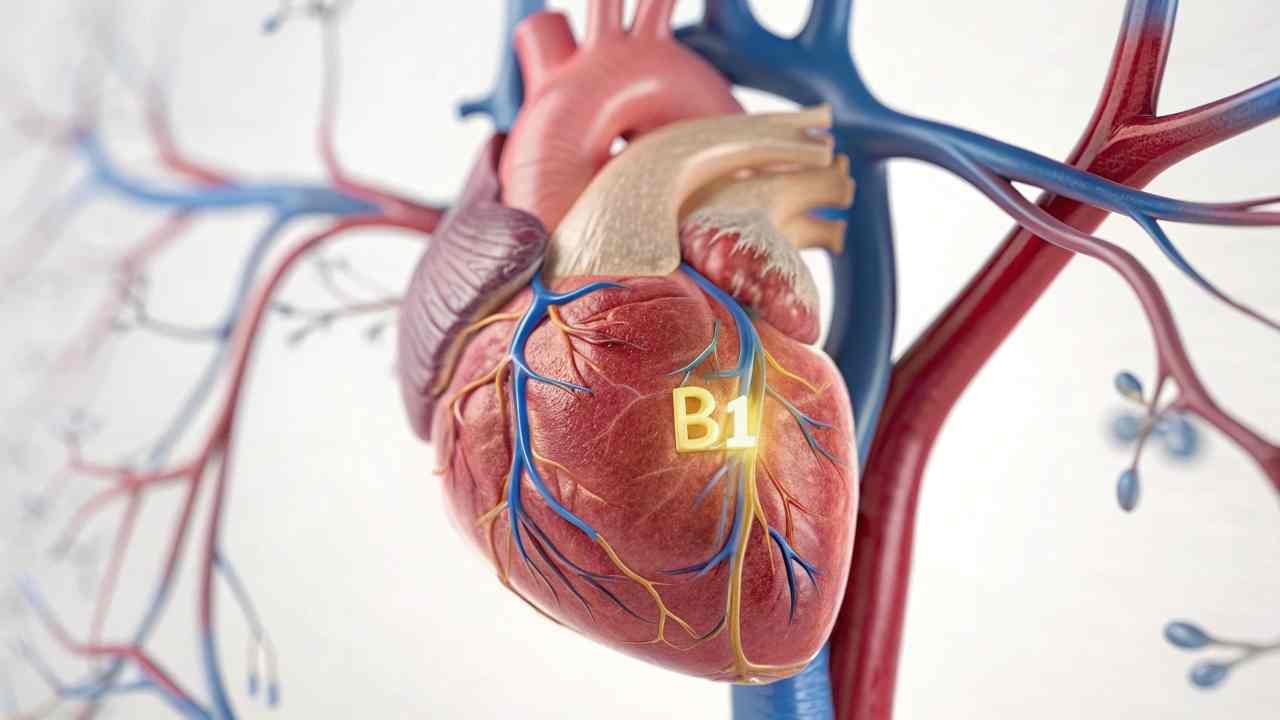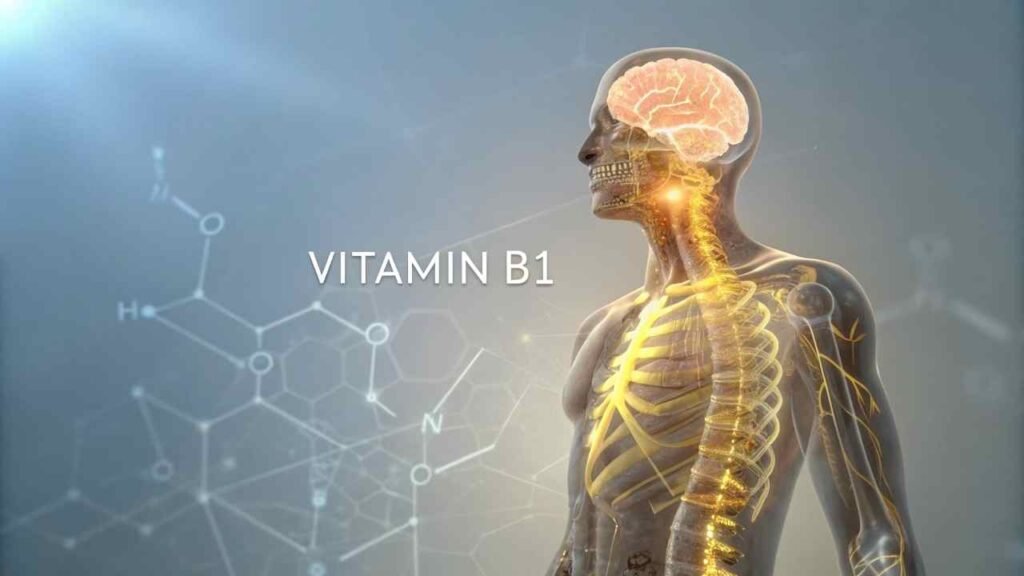Think B1 is only for energy? It does much more! Thiamine is key for your nerves, heart, digestion, and mood. Let's briefly explore its wider benefits.
Vitamin B1 (thiamine) boosts well-being by aiding energy, nerve function, heart health, digestion, and mood. Good levels are vital for many body systems beyond just energy.
At FINETECH, we supply essential vitamins like B1. While its energy role is known, clients are often interested in broader impacts. Let's quickly look beyond basic energy.
Beyond energy, what other bodily systems rely on adequate Vitamin B1?
Know B1 fuels your body? What else needs it? Let's quickly list other systems dependent on thiamine.
Beyond energy, Vitamin B1 is crucial for the nervous system (brain/nerves), cardiovascular system (heart), immune system (response), and muscular system (function, coordination).

B1's role in energy production1 (as TPP) fuels almost every cell. Key systems relying on it include:
- Nervous System: Needs B1 for energy, making neurotransmitters (like acetylcholine for memory), and myelin (nerve insulation). Low B1 causes nerve issues.
- Cardiovascular System: The heart needs massive energy from B1-dependent pathways for constant pumping. Deficiency can weaken the heart.
- Immune System: Immune cells need energy to function. B1 supports this.
- Muscular System: All muscles need B1 for energy to contract.
B1-Dependent Systems:
| System | Key B1 Role | Low B1 Impact |
|---|---|---|
| Nervous | Energy, Neurotransmitters, Myelin | Nerve damage, Poor memory |
| Cardiovascular | Heart energy, Rhythm support | Weak heart, Irregular beat |
| Immune | Energy for immune cells | May impair response |
| Muscular | Energy for contraction | Weakness, Poor coordination |
Adequate B1 is fundamental for these vital systems.
Can maintaining good Vitamin B1 levels help with stress management or mood?
Feeling stressed or down? Can Vitamin B1 help? Let's quickly check B1's link to stress and mood.
Yes, good B1 levels support nerve health and brain chemical balance, which can indirectly aid stress response and mood. Severe deficiency is linked to irritability and depression.

B1 isn't a direct "stress pill," but it's vital for a healthy nervous system2, which underpins good mood.
- Brain Energy: B1 fuels brain cells. Low B1 can impair the brain's ability to cope with stress.
- Neurotransmitters: B1 helps make acetylcholine (for cognition). A healthy nervous system, supported by B1, better regulates mood chemicals.
- Deficiency Symptoms: Irritability, anxiety, and depression are known signs of low B1.
B1's Link to Mood:
| B1 Role | How It Helps Mood/Stress | Low B1 Effect |
|---|---|---|
| Brain Energy | Fuels brain coping mechanisms | Fatigue, Poor focus |
| Neurotransmitter Aid | Supports mood-related chemicals | Irritability, Anxiety |
| Overall Nerve Health | Foundation for balanced brain chemistry | Mood issues |
Good B1 levels provide a foundation for better stress management and mood.
What is the role of Vitamin B1 in maintaining a healthy digestive system?
Digestive issues? Could B1 be involved? Let's quickly see thiamine's role in digestion.
Vitamin B1 aids digestive health by fueling gut muscle movement (peristalsis), possibly helping make stomach acid, and supporting healthy gut nerves.

B1 supports digestion in several ways:
- Energy for Gut Muscles3: Powers peristalsis (food movement). Low B1 can mean sluggish digestion.
- Stomach Acid4: May help cells produce hydrochloric acid for food breakdown.
- Gut Nerves5: The gut's "second brain" needs B1 for energy and function. Low B1 can impair gut nerve signals, affecting motility and appetite.
B1 in Digestion:
| Digestive Aspect | B1's Contribution | Low B1 Impact |
|---|---|---|
| Gut Muscles | Energy for peristalsis | Sluggishness, Constipation |
| Stomach Acid | May aid HCl production | Poor food breakdown |
| Gut Nerves | Energy for nerve signals | Poor motility, Low appetite |
Adequate B1 helps keep the digestive system working efficiently.
How does Vitamin B1 contribute to cardiovascular health in everyday individuals?
Want a healthy heart? Is B1 important? Let's quickly look at thiamine's role in heart health.
Vitamin B1 is vital for heart muscle energy, helps keep a normal heart rhythm, supports healthy blood vessels, and may indirectly aid blood pressure via nerve function.

The heart needs constant energy, making it very dependent on B1.
- Heart Fuel: B1 is key for ATP (energy) production in heart muscle cells.
- Heart Rhythm: Supports nerve and muscle cell function for regular electrical signals.
- Blood Vessel Health: Contributes to healthy endothelium (vessel lining).
- Preventing Beriberi: Severe deficiency causes wet beriberi (heart failure), highlighting B1's critical role.
B1 for Heart Health:
| Heart Aspect | B1's Support Role | Low B1 Risk |
|---|---|---|
| Muscle Energy | Fuels heart contractions | Weak pumping |
| Rhythm | Aids electrical signaling | Irregular beat |
| Vessel Health | Supports healthy vessel lining | Impaired circulation possible |
Consistent B1 intake is important for everyday cardiovascular health.
What should consumers look for when choosing a food or supplement to ensure good Vitamin B1 intake?
Want to boost B1? What's best on labels? Let's find out how to choose foods and supplements.
Choose whole grains, legumes, pork. For supplements, look for "thiamine HCl" or "mononitrate," adequate dose (RDA), and reputable brands (GMP certified).

Make informed choices for better B1 intake:
- Foods:
- Whole grains (brown rice, whole wheat).
- Fortified/Enriched grains (bread, cereals) - check %DV on label.
- Lean pork, legumes (beans, lentils), nuts/seeds.
- Supplements:
- Forms: Thiamine HCl or Thiamine Mononitrate are common and effective.
- Dosage: RDA is ~1.1-1.2 mg/day. Supplements vary (often 25-100mg). Moderate doses (5-10mg) are often fine if diet is okay.
- Brand: Reputable, GMP-certified brands. B-complex often good.
- Consult Doctor: If unsure or have health issues.
Selection Tips:
| Factor | Foods | Supplements |
|---|---|---|
| Look For | Whole grains, Fortified, Pork, Legumes | Thiamine HCl/Mononitrate, Dose, Good Brand |
| Label Check | %DV for Thiamine | Ingredients, GMP, Certifications |
Conclusion
Vitamin B1 is crucial for energy, nerves, heart, digestion, and mood, supporting overall well-being. Smart food and supplement choices help maintain adequate levels for a healthier life.
-
Understanding energy production is crucial for grasping how our body functions and maintains health. Explore this link for deeper insights. ↩
-
Understanding the connection between a healthy nervous system and mood can enhance your approach to mental wellness. ↩
-
Understanding the role of energy in gut muscle function can enhance your knowledge of digestive health. ↩
-
Exploring the importance of stomach acid can provide insights into effective digestion and nutrient absorption. ↩
-
Learning about gut nerves can reveal how they impact digestion and overall health, making it a vital topic to explore. ↩


